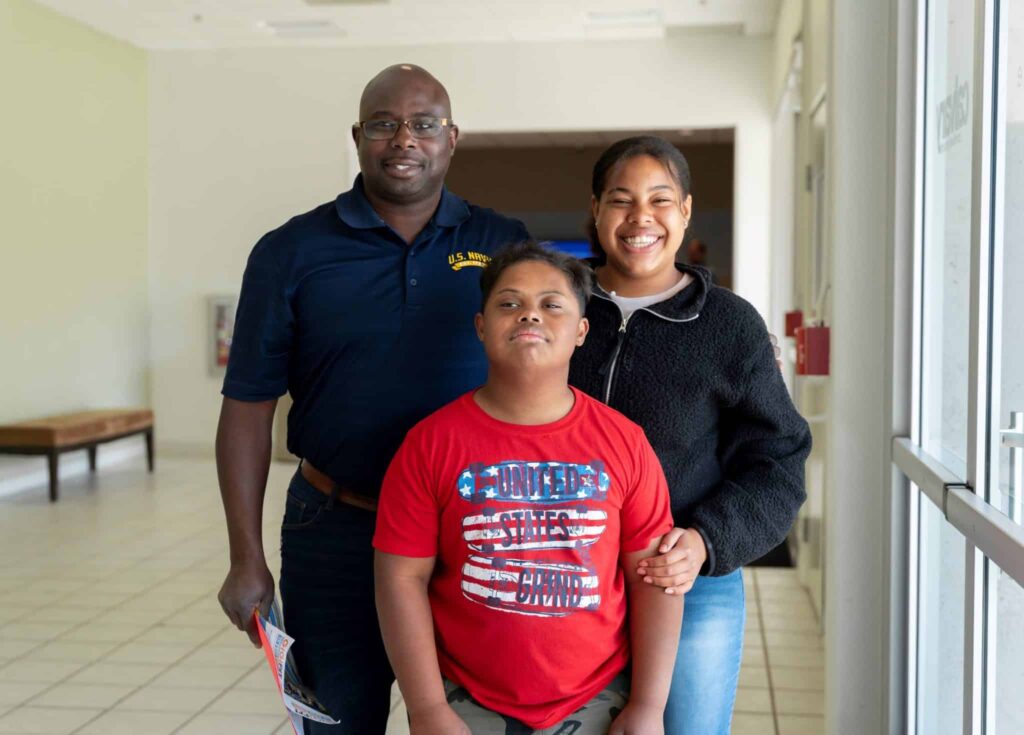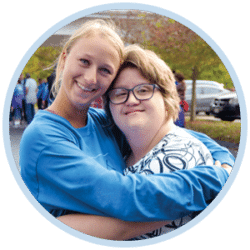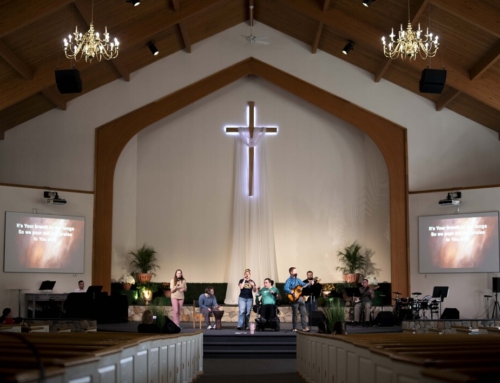Adapting Church Curriculum for People with Intellectual Disabilities

People often ask, “What’s a good curriculum for people with intellectual disabilities?”
It’s a great question! And there are a lot of good answers.
But what if the best curriculum is the one your church is already using? In most cases, a few simple modifications can make any curriculum work for those with learning disabilities.
Plus, no worries about evaluating new curriculum or incurring additional expenses.
And most importantly, it allows those with intellectual disabilities to learn what everyone else is learning—promoting unity in your church.
So how do you adapt your curriculum?
1. Boil It Down
Identify the key “nugget” from the lesson. This can usually be summarized in one sentence. Restate that concept in the simplest, most concrete way you can. Keep sentences short. Remove abstract language and figures of speech such as “it’s raining cats and dogs.” Instead, say, “There was a lot of rain.”
2. Personalize the Teaching
Help your students relate the lesson to themselves or their families. Incorporate students’ names as you re-tell or apply the lesson. For example, after reading “For God so loved the world…” consider restating the verse as, “For God so loved Brett, and Tracey, and Scott, and Crystal.”
3. Incorporate Action
Adding hand motions, such as sign language, is a way of reinforcing the lesson, encouraging participation, and literally engaging more parts of the brain! Building in movement or dance as you communicate can entertain, retain focus, and support memory.
4. Use Multiple Methods of Teaching
Incorporate auditory, visual, or tactile activities into the lesson. Engaging each of these learning styles gives those you are teaching the best opportunity to understand and retain the lesson. Simply reading a lesson is unlikely to be memorable. Reading with visuals is better. Reading with visuals and an activity is best.
5. Enable Participation in Activities
Some people with intellectual or physical disabilities may find participation difficult. A child who lacks fine motor skills may not be able to do the whole craft themselves. But finding one aspect that they can do may help them enjoy and take ownership of the activity. Don’t assume that someone’s disability precludes them from participation. Instead, think creatively about ways they can engage and participate within their abilities.
6. Provide Language Support
You may need to restate a concept or question in different ways. If comprehension is lacking, try asking the question more simply or with different words. Open-ended questions can be difficult. If needed, provide a few options such as, “Who did God tell Moses to go talk to? Was it Aaron or Pharoah?” For some students, simplify further using yes or no questions. And remember, there are more ways to answer than out loud! Pointing at the answer is as valid as speaking it.
7. De-Stress
Sometimes, the struggle to communicate has nothing to do with the lesson itself! The students may just not be able to hear due to stress. Building breaks into the schedule can help those distracted by stress reengage. Provide sensory materials and a safe place for stress reduction. Explain the schedule of the service and what is expected at each stage. For example, “During worship we can move around, sing out loud, and raise our hands in praise. But during the teaching time, we need to sit in our chairs, raise our hands if we want to talk, and pay attention to the teacher.” Chaos breeds chaos—preceding a time of teaching with stress and disorder is likely to impact someone’s ability to learn.
8. Make Jesus Known
Everything we’ve talked about up to this point is about sharing the message of God’s Word successfully! Remember, unlike school, this lesson does not earn them a grade or a gold star. The lessons from God’s Word have an eternal impact. Teaching biblical truth is vital to people knowing Christ and growing spiritually, but so is everything else that happens when we are gathered as believers. Everything you do, from the moment students arrive shows them what God is like. How you look at them, talk to them, and interact with them can reflect God’s love for them. Your efforts show that God’s Word is for everyone, including those with disabilities.
In 1 Corinthians 3:6-8 (NLT), Paul writes to the Corinthian church reminding them that,
“I planted the seed in your hearts, and Apollos watered it, but it was God who made it grow. It’s not important who does the planting, or who does the watering.
What’s important is that God makes the seed grow. The one who plants and the one who waters work together with the same purpose. And both will be rewarded for their own hard work.”

As you seek ways to make God’s Word known to those with disabilities, be assured that your labor will be rewarded. You must only be faithful.
Every church is unique, and your situation is not identical to any other. If you’d like to talk to a real person about what’s happening at your church, contact us today! We’d love to hear from you and help move you forward.

Do You Have Questions?
Contact us at [email protected] or call (818) 707-5664. We’re here for you. Your ministry’s success is our highest priority!





